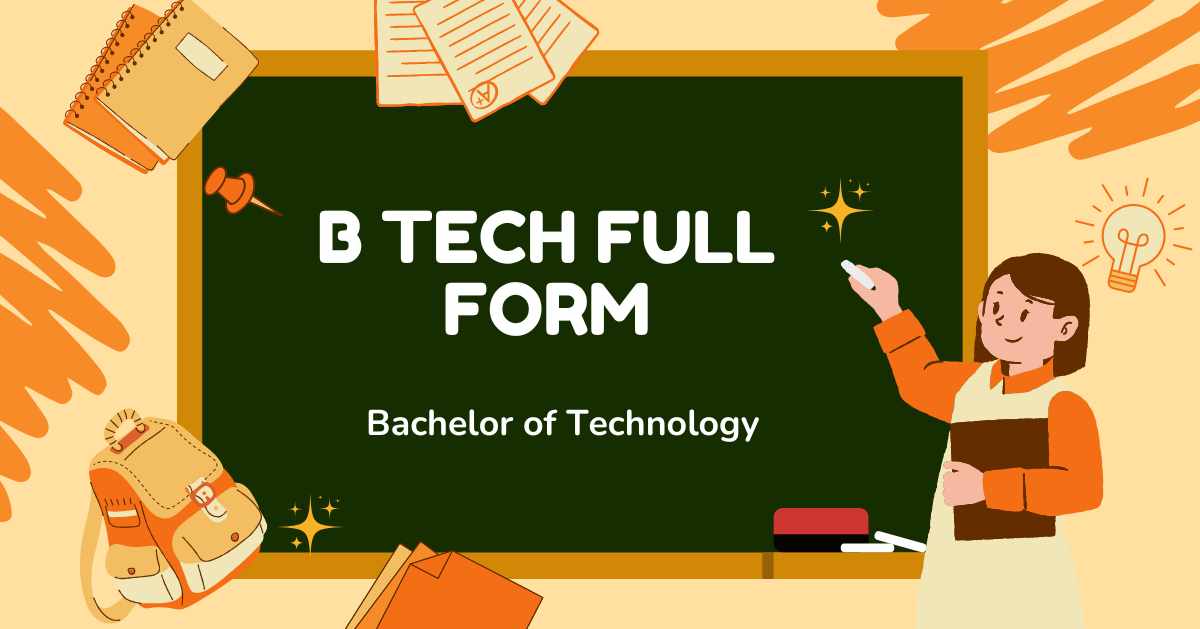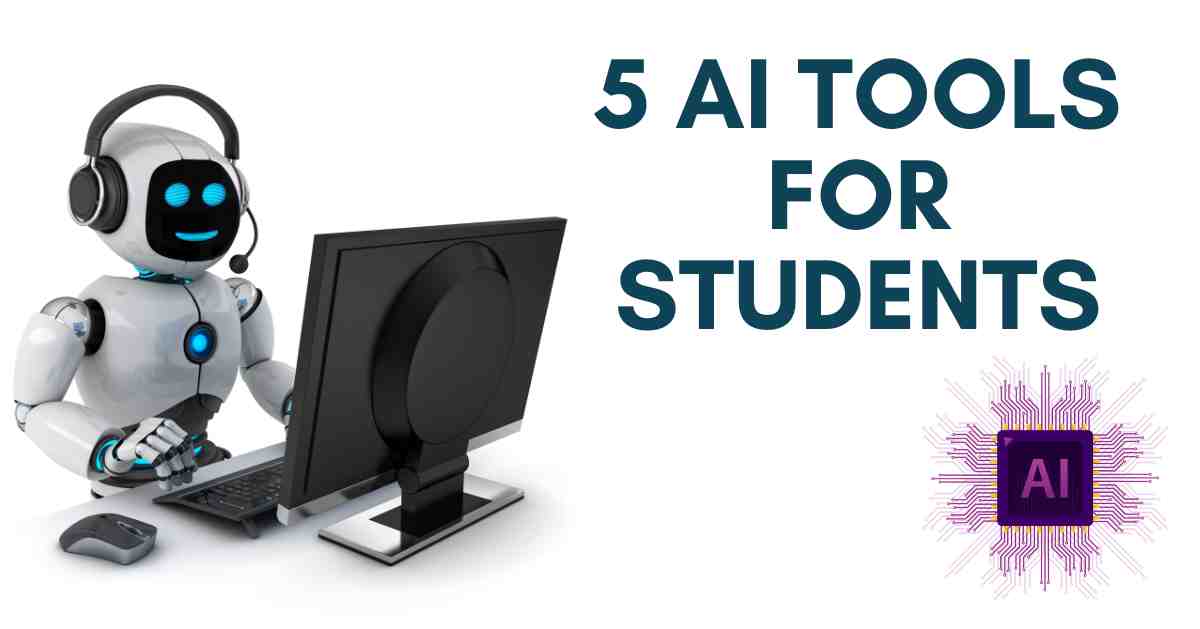B.Tech: Full Form, Exam Pattern, and Detailed Information

B Tech Full Form, short for Bachelor of Technology, is a sought-after four-year undergraduate program provided by colleges and universities. This course emphasizes engineering and technology. It is widely favored in India.
The BTech curriculum equips students with hands-on expertise in engineering disciplines, paving the way for careers in the tech industry. Students have the option to select tracks aligned with their passions and professional aspirations.
Both private and public educational institutions offer BTech programs aimed at developing skills for success in different fields.
BTech Full Form and Definition
B.Tech Full Form for “Bachelor of Technology,” which is usually a four-year program offering specializations in computer science, mechanical engineering, electrical engineering, civil engineering, information technology, and others. The course aims to equip students with an understanding of principles and hands-on skills to adapt to the continuously changing tech industry.
What is the full form of B.Tech?
For those looking into BTech programs, it’s important to understand that BTech stands for Bachelor of Technology. The course spans over eight semesters. It delves into a variety of subjects ranging from engineering principles to more complex ones.
Overview of B.Tech (Bachelor of Technology) Course Details
| Course Duration | 4 years |
| Commonly Known As | B.Tech |
| Full Form | Bachelor of Technology |
| Career Options | Civil Engineer, Mechanical Engineer, Computer Engineer, Electrical Engineer, Marine Engineer |
| Eligibility Criteria | Completed 10+2 in PCM or PCB from a recognized board |
| B.Tech Course Details | Description |
| Admission Process | Entrance test followed by counseling |
| Top Recruiters | Google, Apple, ISRO, Microsoft, Amazon, Flipkart, Intel, TATA Consultancy, Hindustan Unilever Ltd |
| Top Colleges | IITs, NITs, IIITs, GFTIs, VIT, BITS, MIT |
| Salary Range | INR 5,00,000 to INR 7,00,000 per year |
| Entrance Exams | JEE Mains, JEE Advance, GATE |
| Course Fees | Rs. 5 lakhs to Rs. 12 lakhs per year |
| Structure | Semester-based |
| Level | Undergraduate |
| Syllabus | Varies based on specialization |
BTech Eligibility Criteria
To get into a BTech program, students need to meet certain requirements:
Educational Background: Students must complete their 10+2 education in the science stream from a recognized board.
Preferred Subjects: Studying Physics, Chemistry, and Mathematics (PCM) is ideal because these subjects are preferred for BTech programs.
Minimum Marks: Students must score a minimum of 50% in courses like Mathematics, Physics, Computer Science, and Chemistry.
Entrance Exams: Students must pass the entrance exams conducted by the colleges or universities they want to apply to.
Counseling: After passing the entrance exams, students need to attend the counseling process.
Why Choose a BTech Course?
There are reasons to opt for a Bachelor of Technology (BTech) program as your course. If you are curious about understanding the workings of objects or the process behind creating machines, software, and devices, enrolling in a Bachelor of Technology (BTech) program would be a good choice. This course equips you with a grasp of mathematics, engineering fundamentals, computer applications, programming, and electronics.
Students have the option to select from specializations according to their preferences, including BTech in Computer Science (CSE), Textile Technology, Mechanical Engineering (ME), and Electronics and Communication Engineering (ECE), among others. A BTech degree opens up career opportunities in the field of engineering and imparts essential knowledge and skills for a thriving professional journey.
[Also Read: Basic Math Formulas from 5th Grade to B.Tech and Diploma]
Popular Branches of B.Tech
A student who completes a B.Tech degree is called an Engineer. Some popular branches of B.Tech include:
- Computer Science
- Electrical & Communication Engineering
- Electrical Engineering
- Electronics and Communication Engineering
- Civil Engineering
- Mechanical Engineering
- Material Engineering
- Chemical Engineering
- Aerospace Engineering
- Agriculture and Food Engineering
B.Tech Exam Pattern
The B.Tech examination format is designed to assess students’ understanding, abilities, and expertise in engineering and technology fields. Typically, this format consists of elements like written exams, hands-on assessments, project assignments, and ongoing evaluations.
Admission Process and Entrance Exams
Admission to B.Tech programs in India is primarily based on performance in national or state-level entrance exams. Some of the most prominent entrance exams include:
- Joint Entrance Examination (JEE) Main and Advanced: Conducted by the National Testing Agency (NTA) for admission to IITs, NITs, and other prestigious engineering institutes.
- BITS Admission Test (BITSAT): Conducted by Birla Institute of Technology and Science (BITS) for admission to its campuses.
- VIT Engineering Entrance Exam (VITEEE): Conducted by Vellore Institute of Technology (VIT) for admission to its campuses.
- State-Level Entrance Exams: These include MHT-CET, WBJEE, KCET, etc., for admission to state engineering colleges.
Semester Exam Pattern
The B.Tech program spans eight semesters, and exams take place at the end of each semester. The examination format usually includes the following:
- Theory Exams: Written exams that test the understanding of theoretical concepts. These are usually held at the end of each semester and contribute significantly to the final grade.
- Practical Exams: Laboratory-based exams that assess the practical skills and application of theoretical knowledge. These are conducted periodically and at the end of the semester.
- Internal Assessments: Continuous assessments through quizzes, assignments, mid-semester exams, and class participation. Assessments like these play a role in determining the grade and encourage consistent performance over the semester.
- Project Work: Final-year projects or capstone projects that require students to apply their knowledge to real-world problems. These projects are evaluated based on innovation, implementation, and presentation.
Evaluation and Grading
Evaluation methods in B.Tech programs usually include considering marks from theory exams, practical exams, internal assessments, and project assignments. Different institutions have varying grading systems, but they typically use credit-based methods. They calculate the final grade by averaging these credits.
Conclusion
B.Tech stands for Bachelor of Technology, which is an undergraduate program that provides comprehensive education in different engineering fields. The program involves examinations such as JEE Mains and GATE. Follows a well-structured curriculum that spans four years. B.Tech prepares students with the skills required for engineering professions, establishing a solid technological foundation.
FAQs
BTech is a four-year undergraduate degree program focused on various fields of engineering and technology.
The full form of BTech is Bachelor of Technology.
BTech refers to a degree that provides specialized knowledge in engineering disciplines.
Salaries for BTech graduates range from INR 5,00,000 to INR 7,00,000 per year, depending on the specialization and employer.
Yes, you can pursue BTech after completing your 12th standard with PCM (Physics, Chemistry, Mathematics) as core subjects.






